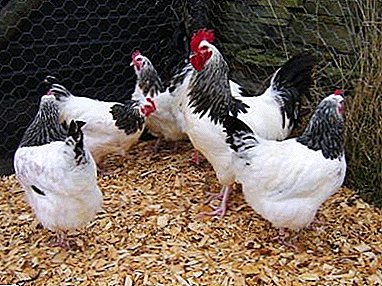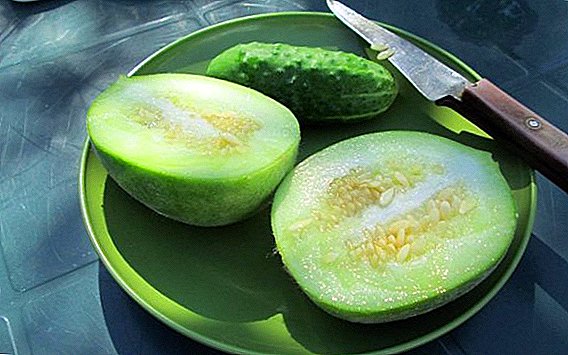
For many decades breeders have been creating new varieties and hybrids of white cabbage. That is why when choosing a seed, many factors have to be taken into account: ripening time, storage degree, taste, application features. White cabbage is an indispensable vegetable crop on our table. Late-ripening wintering is perfect for long-term storage. The taste of this cabbage becomes even better with time. Growing Wintering, experienced gardeners provide themselves with this crop for the whole winter and the first half of spring.
definition
Botanical description
The socket is semi-sprawling, medium or large in size (its diameter ranges from 74 to 119 cm). The leaves are rounded, wavy on the edges, gray-green, with a pronounced waxy coating. Leaf plates of medium size, have a length of 40-48 cm, and a width of 32-46 cm.
Heading at Wintering is rounded flat. The weight of technically mature cabbage varies from 2 to 3.6 kg, individual instances may have an even greater mass. The forks are twisted very tightly, there are almost no gaps between the leaves. The outer stalk is long and the inner one is of medium length.
Appearance
Cabbage Wintering has very dense, flat-circular cabbages of medium size. The color is greenish with a grayish shade on the outside and yellowish-white when cut. The internal structure is thin. The leaves are well visible wax coating, there are non-rigid streaks.
Brief history of selection
In 1963, the variety was zoned, that is, they established cultivation areas - Central, Volga-Vyatsky, Middle Volga and Far Eastern. Recommended Wintering also for Kazakhstan.
Distinctive features
Wintering has the following unique characteristics:
- a high degree of keeping quality - up to 7-8 months;
- high density of heads;
- improved palatability during storage.
Advantages and disadvantages
The positive properties of this culture include:
 cold resistance (withstands freezing to -6ºС);
cold resistance (withstands freezing to -6ºС);- unpretentiousness to the soil composition, droughts;
- productivity makes from 6 to 7 kg from 1 m2;
- leader among white cabbage in ascorbic acid content;
- high degree of keeping quality, which gives a small amount of waste;
- resistance to cracking;
- excellent transportability;
- good immunity, heads are almost not susceptible to pinpoint necrosis and gray rot.
Only a small bitterness of the leaves during the harvest and during the first three months of storage can be attributed to the negative property, but then the taste qualities are improved and revealed to the full.
Similar varieties
Cabbage varieties with similar characteristics include:
- Gingerbread Man.
- Krumone
- Amager.
- Glory.
- Moscow late.
How to distinguish from other species?
Using the following recommendations, it is possible to distinguish cabbage Wintering from other heads:
- It is necessary to pay attention to the cabbage density: with an average size, the weight of the head should be 3-4 kg.
- Mark the characteristic color of the leaves: with a blue-green shade and a strongly pronounced wax coating.
- Evaluate the sheets in shape: at Zimovka they are slightly wrinkled with a wavy edge.
Purpose of use
Cabbage contains a large amount of vitamins and minerals, this variety is especially rich in ascorbic acid and sugars. Therefore, it is recommended to use fresh from the second half of winter for cooking soups, salads, pies, stews, cabbage rolls. This variety is also well suited for pickling and salting.
Conclusion
Cabbage Wintering perfectly proved itself to be frost-resistant, disease-resistant and suitable for long-term storage of the variety. By selecting it for growing in your garden, you can get a high yield of high-quality reliable cabbage heads.


 cold resistance (withstands freezing to -6ºС);
cold resistance (withstands freezing to -6ºС);









